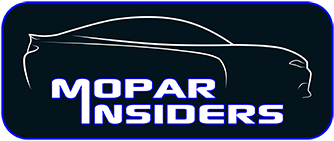
Before there was the electric 2017 Chrysler Portal Concept, there was the 2008 Chrysler ecoVoyager Concept.
“The 2008 Chrysler ecoVoyager Concept celebrates the romance of automobile travel embodied in a four-door, four-passenger, distinctively American automobile of spirited design,” said Greg Howell, principal ecoVoyager Concept exterior designer. “While the ecoVoyager’s supple, flowing one-box shape is purposely designed to achieve aerodynamic efficiencies, it also pushes the Chrysler brand language in a new direction of ‘elegant simplicity,’ by taking full advantage of the space normally occupied by a bulky conventional powertrain setup to drastically reduce the front overhang.”

Featuring crisscrossing forms defined by hard lines with fluid intersections, the style vocabulary of the ecoVoyager embodied Chrysler’s harmonization of functional technology with beautifully-styled exteriors and interiors.
The Chrysler ecoVoyager Concept was developed for customers wanting a travel experience on par with a private jet, but without a lot of fancy gadgetry. These type of customers seek three critical attributes: elegance, simplicity and serenity.

The ecoVoyager’s wheels were driven by an electric motor, with power primarily supplied by a lithium-ion battery pack capable of satisfying a consumer’s typical daily commute of less than 40 miles.
The electric motor developed 200 kilowatts (268 horsepower), enabling acceleration from 0 to 60 mph in less than eight seconds. A regenerative braking system could capture energy that would normally be lost and returned it to the battery, making the Chrysler ecoVoyager Concept a very efficient and spacious vehicle.

The ecoVoyager took advantage of a range extender – in this case, a small, advanced hydrogen fuel cell — to extend the vehicle range for occasional long trips. With this advanced technology, the Chrysler ecoVoyager’s total range was greater than 300 miles, while no emissions—besides water vapor—come from the tailpipe along the way.
With the entire propulsion system located below the ecoVoyager’s floor, space was maximized for utility of passenger and cargo.

Chrysler ecoVoyager Concept Exterior:
Expressive details of the Chrysler ecoVoyager Concept included a panoramic roof glass that bisected with a center spine, tight body overhangs and a dramatic boat-tail back end. The sinuous shapes of the window graphics, headlamps, taillamps and grille openings were inspired by Chrysler’s storied winged badge.
The curving trapezoidal shape of the ecoVoyager’s grille was echoed by the clear lens-covered shadow box that houses the rear license plate. The sloping backlight featured a similar shape, emphasizing the repeating harmony of the ecoVoyager’s design elements.

Other exterior touches on the Chrysler ecoVoyager Concept included the elongated, flaring “light catchers” on the lower doors and the front and rear fascias, enhanced by the Polar Ice exterior color.
Finally, the side doors opened a wide 90 degrees. Since the rear doors were hinged at the rear and there was no center B-pillar, entrance into the ecoVoyager was virtually unimpeded.

Chrysler ecoVoyager Concept Interior:
By placing the front wheels of the Chrysler ecoVoyager Concept farther forward than usual, designers were able to create greater interior roominess and increased legroom, especially in the rear seats.
In the ecoVoyager’s spacious interior, the size, design and location of all controls had been rethought to provide its four pampered passengers the luxury of having every feature within effortless reach.

“In some ways, true luxury is in not having to reach or search around for controls,” said Ty Stump, principal interior designer of the Chrysler ecoVoyager Concept. “With the ecoVoyager Concept, we carefully placed the gauges and controls in order to reduce head and eye movement. We also achieved simplicity in the interior forms, both for visual elegance and to avoid distracting surfaces.”
The ecoVoyager’s windshield defroster and cabin air-conditioning outlets in the instrument panels and doors, for example, were invisible beneath a recessed perforated mesh. This avoided visually-disruptive array sliding vanes and protruding knobs. Even the color of the interior—soft Dove Gray with warm cherry wood accents—was designed to promote a relaxed ambiance.

The Chrysler ecoVoyager’s unconventional instrument panel featured a broad, leather-covered angled surface, slightly V-shaped in plain view and fronted by a full-width display screen set just below the windshield. The left and right outer ends of the non-glare screen contain the side-view mirror image, while a third camera image in front of the driver served as the rearview mirror.
Unlike most instrument clusters, only currently-needed information would be displayed, designed to be viewed above the steering wheel rim rather than through it (and requiring less up-down eye movement and refocusing). The front-seat passenger could view a movie without its moving images disturbing the driver. A slick, slide-out/retractable center console—fitted with hot-key buttons and a mouse pad—replaced the functions contained in a conventional vertical center stack.

The ecoVoyager’s four individual chairs were contoured for personalized comfort. The seat framing was exposed, with under-seat storage drawers. Front seats had individual cantilevered, adjustable armrests containing the window controls and heat/massage switches, while individual rear-seat armrests folded into the cabin back panel. With the ability to store six 20-ounce bottles, the floor console dividing the rear seats could accommodate hot or cold beverages.
A recessed area in the headliner between the two longitudinal skylights contained the “Direct Sound” function. With this feature, the musical entertainment choice of each individual occupant could be directed to him or her without the use of headphones, and without disturbing others in the car.
Sleek, refined, efficient and superbly comfortable, the Chrysler ecoVoyager Concept vehicle offered a new experience in stress-free travel.
Chrysler ecoVoyager Concept Image Gallery:





